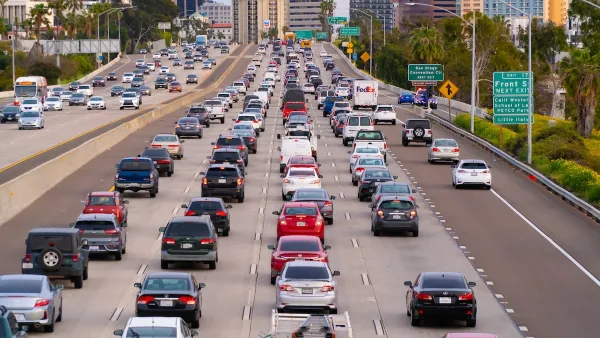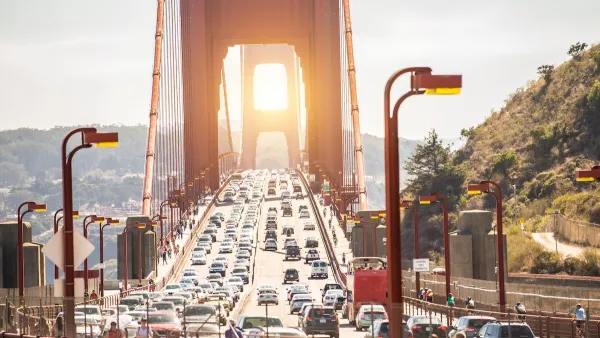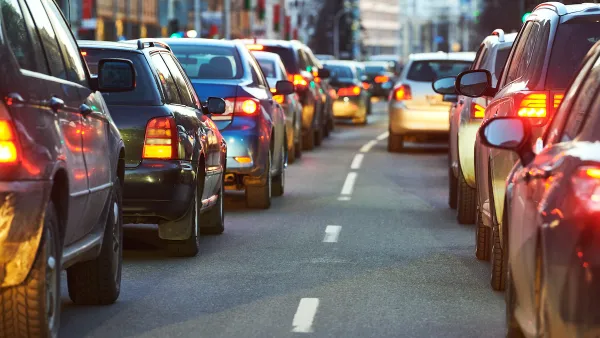A new study in 8 countries says yes, contrary to government predictions.
From the report's abstract, authored by Adam Millard-Ball and Lee Schipper:
"Through decomposing passenger transport energy use into activity, modal structure and modal energy intensity, we show that increases in total activity (passenger travel) have been the driving force behind increased energy use, offset somewhat by declining energy intensity. We show that total activity growth has halted relative to GDP in recent years in the eight countries examined. If these trends continue, it is possible that an accelerated decline in the energy intensity of car travel; stagnation in total travel per capita; some shifts back to rail and bus modes; and at least somewhat less carbon per unit of energy could leave the absolute levels of emissions in 2020 or 2030 lower than today."
Melinda Burns at Miller-McCune writes:
"Most of the eight countries in the study have experienced declines in miles traveled by car per capita in recent years. The U.S. appears to have peaked at an annual 8,100 miles by car per capita, and Japan is holding steady at 2,500 miles."
FULL STORY: A Road Less Traveled

National Parks Layoffs Will Cause Communities to Lose Billions
Thousands of essential park workers were laid off this week, just before the busy spring break season.

Retro-silient?: America’s First “Eco-burb,” The Woodlands Turns 50
A master-planned community north of Houston offers lessons on green infrastructure and resilient design, but falls short of its founder’s lofty affordability and walkability goals.

Delivering for America Plan Will Downgrade Mail Service in at Least 49.5 Percent of Zip Codes
Republican and Democrat lawmakers criticize the plan for its disproportionate negative impact on rural communities.

Test News Post 1
This is a summary

Test News Headline 46
Test for the image on the front page.

Balancing Bombs and Butterflies: How the National Guard Protects a Rare Species
The National Guard at Fort Indiantown Gap uses GIS technology and land management strategies to balance military training with conservation efforts, ensuring the survival of the rare eastern regal fritillary butterfly.
Urban Design for Planners 1: Software Tools
This six-course series explores essential urban design concepts using open source software and equips planners with the tools they need to participate fully in the urban design process.
Planning for Universal Design
Learn the tools for implementing Universal Design in planning regulations.
EMC Planning Group, Inc.
Planetizen
Planetizen
Mpact (formerly Rail~Volution)
Great Falls Development Authority, Inc.
HUDs Office of Policy Development and Research
NYU Wagner Graduate School of Public Service





























